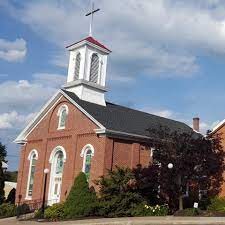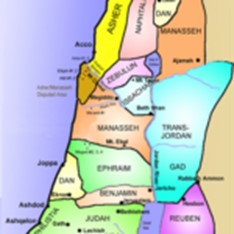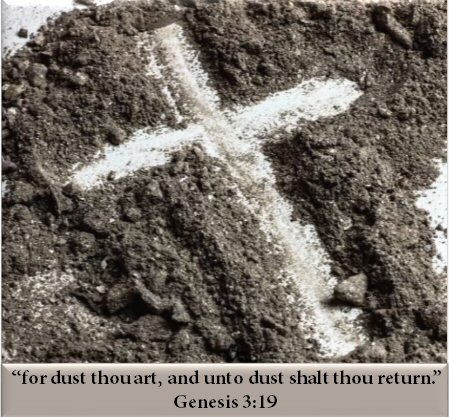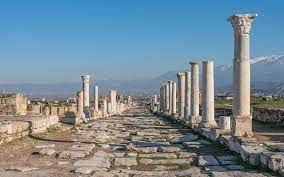Moravian Church in America Southern Province

The Moravian Church established its own ministry in 1457 when a small group of Christians gathered together. The Southern Province of the Moravians are those Moravian churches in the states of North Carolina, South Carolina, Virginia, Georgia and Florida. It is a member of the National Council of Churches.
The Moravian church is a historic church that originated in ancient Bohemia and Moravia, modern day Czechoslovakia. These countries converted to Christianity in the mid-ninth century. Gradually Bohemia and Moravia was taken over by the ecclesiastical jurisdiction of Rome. There were some of the people who protested and held on to the traditional Protestantism.
The Bethlehem Chapel in Prague, Czechoslovakia was the gathering point for the Czech Reformation under the guidance of John Hus who was the dean of the philosophical faculty of the University of Prague. It was the students and the common people that John Hus led to protest against the doctrinal positions of the Roman hierarchy. They were known as the Unity of Brethren and the followers of John Hus.
The Moravian Church in America Southern Province established the Provincial Synod as the highest governing body that represents the Province. The Provincial Synod is compiled of members that are elected to represent the different congregations. They meet every four years.
The Moravian Church in America Southern Province established the Provincial Elders’ Conference that is responsible for carrying out the mandates of the Synod and they act on behalf of the Synod. The Provincial Elders’ Conference is elected at Synod. They do not have nominations the elect five Elders by written ballot and the voting body. They are all under the guidance of the Holy Spirit. The president of the Conference is the only paid person of the five Elders. The Elders’ Conference brings long range perspective for the Synod. The church consecrated their Bishops to a special priestly pastoral ministry. They are the Pastor to the Pastors.
The headquarters for The Moravian Church in America Southern Province is Winston- Salem, North Carolina.
History
The Moravian church is a historic church that originated in ancient Bohemia and Moravia, which is now modern day Czechoslovakia. These countries converted to Christianity in the mid ninth century. Gradually Bohemia and Moravia was taken over by the ecclesiastical jurisdiction of Rome. There were some of the people who protested and held on to the traditional Protestantism.
The church established its own ministry using its own hymnal and catechism. They published the entire Bible in 1593. The Moravian Church spread into Poland because of persecution that occurred in 1557. The Thirty Year War brought more persecution to the Moravian church from 1618-1648. The Protestants of Bohemia were defeated.
There was a renewal of the Moravian church in the 18th century with the encouragement of the Imperial Court Nicholas Ludwig von Zinzendorf. Nicholas Ludwig von Zinzendorf lived from May 26, 1700 to May 9, 1760 and was a German religious reformer and became the bishop of the Moravian Church.
The Moravian arrived in America and attempted to establish a Moravian settlement in Georgia which was unsuccessful, from 1735 to 1740. They then settled in Pennsylvania, Maryland and New Jersey. They spread the Gospel principally to the American Indians.
The Moravian Church in America Southern Province established a settlement in North Carolina in 1753 and soon became the headquarters of the North and South provinces of the Moravian Church of America. The Moravian Church in America Southern Province became established as a self-governing body after the Unity Synod of 1848. The Southern Province added churches in Winston, Salem, North Carolina, Georgia and Florida.
Belief
The Moravian Church in America Southern Province believe in the Father, Son and Holy Spirit. They believe and confess that God has revealed Himself in His son Jesus Christ. They believe Jesus Christ is the Lord and Redeemer of the whole of humanity by His death and His Resurrection. They believe there is not salvation apart from Jesus Christ.
The Moravian Church in America Southern Province believe in the Covenant for Christian Living. They proclaim Jesus Christ is Lord. They believe their Christian life depends on their effort and upon God the Father, who in Jesus Christ accepts all as heirs of God.
The Moravian Church in America Southern Province believe God has called many and they believe it is possible to have disagreements within the Church. They believe it is their responsibility to demonstrate within the life of the congregation the unity that is created by God to make them one under the control of God. They believe this shows the validity of their faith.
The Moravian Church in America Southern Province believe in mutual respect with all other children of God in other Christian Churches. They believe it is imperative to avoid all disputes and respect others opinions as well as other ceremonies from other churches. They believe it is through the grace of Jesus Christ that the different denominations have received their gifts also from God. They believe the Church of Christ should enrich their lives and welcome the contributions from other church.
The Moravian Church in America Southern Province believe in accepting other creeds of the Christian Church. They honor the Apostles’ Creed, Augsburg Confession and the Nicene Creed. The motto of the Moravian Church is “In essentials, unity; in nonessentials, liberty; and in all things, love.”
The Moravian Church in America Southern Province believe they have died to sin and should walk in a newness of life. They believe their Christian faith must be nourished in order to live fundamental lives. They believe they must grow as Christian through faith, family devotions and study, personal prayer and accepting spiritual development provided by the Church. They believe in Baptism that unites all with the death of Jesus Christ and His resurrection. They believe in Baptism by sprinkling administering the Baptism in the name of the Father, Son, and Holy Spirit. They do infant Baptism giving the responsibility to the parents, and the congregation. They believe it is through Baptism the individual receives the pledge of forgiveness of sin and the admission into the covenant of God through the blood of Christ.
The Moravian Church in America Southern Province believe the Holy Communion is a sacrament. The Moravian Church in America Southern Province does not believe in characterizing the mysteries of the presence of Christ in the communion elements. They believe that the believers are participates in the covenant with Christ as the Savior and with other believers in Christ. It is a Church service of praise and prayer using the singing of hymns as the elements of the Communion is being distributed. They believe the Holy Communion is a time of fellowship and a special covenant with Christ and with each other.
The Moravian Church in America Southern Province believe their lives are a sacred trust. The take being faithful stewards is imperative to their faith and the giving of their time, talents and their financial resources.
Cite Article Source
MLA Style Citation:
Holstein, Joanne “Moravian Church in America Southern Province:.” Becker Bible Studies Library Jan 2006.<https://guidedbiblestudies.com/?p=2749,>.
APA Style Citation:
Holstein, Joanne (2006, January) “Moravian Church in America Southern Province:.” Becker Bible Studies Library. Retrieved from https://guidedbiblestudies.com/?p=2749,.
Chicago Style Citation:
Holstein, Joanne (2006) “Moravian Church in America Southern Province:.” Becker Bible Studies Library (January), https://guidedbiblestudies.com/?p=2749, (accessed).


